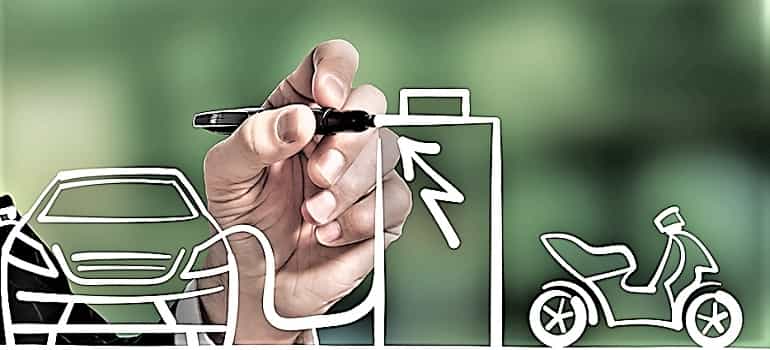Government Initiative Aims to Attract Global Manufacturers, Boost Domestic Production, and Create Opportunities for Young Businesses
The Indian government’s recent EV policy, unveiled on March 15, 2024, has sent shockwaves through the auto industry, promising a future brimming with electric vehicles (EVs). This analysis, inspired by The Washington Post’s approach, dissects the policy’s potential impact on the Indian EV market, its long-term vision, and the exciting opportunities it presents for startups.
The policy prioritizes providing Indian consumers with access to the latest EV technology. This translates to a wider range of choices, potentially better performance, and a more eco-friendly driving experience. Additionally, the policy aims to reduce air pollution, particularly in urban areas, leading to a healthier environment for all.
Boosting Make in India and the EV Ecosystem:
By attracting reputed global EV manufacturers, the policy strengthens the “Make in India” initiative. This not only promotes domestic manufacturing but also fosters a competitive environment among EV players. This competition can drive higher production volumes, economies of scale, and ultimately, lower production costs for EVs. This affordability will likely incentivize more consumers to switch to electric, further accelerating the EV revolution in India.
The Startup Opportunity:
The policy’s emphasis on domestic value addition (DVA) creates a fertile ground for startups. With established manufacturers needing to achieve 25% DVA by the third year and 50% by the fifth, a robust ecosystem of suppliers and component manufacturers will be crucial. This presents a significant opportunity for startups specializing in EV components, battery technology, charging infrastructure, and even EV servicing. To tap into this potential, startups should focus on innovation, cost-effectiveness, and building strong partnerships with established players.
Challenges and Considerations:
The policy has its share of challenges. The high minimum investment requirement (Rs 4150 crore) might deter smaller foreign companies. Additionally, achieving the stipulated DVA targets within the specified timeframe will necessitate a well-developed supply chain ecosystem, which might take time to establish.
What Industry Says:
Abhishek Jain, Head of Indirect Tax and Partner at KPMG, highlights, “With India’s vigorous drive in the electric vehicle revolution, the government’s pioneering PLI scheme, coupled with recent initiatives like the Electric Mobility Promotion Scheme 2024 and the E Vehicle policy, underscores a resolute dedication to fortifying the EV sector, aligning with the ‘Make in India’ initiative to position India as a manufacturing hub.”
Raman Bhatia, Founder & Managing Director, Servotech Power Systems Ltd.
The new electric vehicle policy will make India a global powerhouse for EV manufacturing. It is a boon for India’s booming economy and acts as a major push forward in the nation’s aspirations for clean transportation. Keeping a strong focus on prioritizing domestic manufacturing and encouraging competition and growth, this policy will provide enough chances and harbour enough space to facilitate increasing the adoption of EVs across the nation and aligns with the “Make In India “ initiative promoting local production and job creation. This policy acts as a gateway for large-scale investments from global EV giants like Tesla, making India an EV manufacturing hub globally and providing the much-needed impetus for the local players to enhance their manufacturing capacities and adapt high-tech EV technologies. This healthy rivalry will drive innovation, reduce production costs, and ultimately benefit Indian consumers with a broader range of high-quality, affordable EVs.
Indian government’s EV policy is a bold step towards establishing India as a major EV hub. While challenges exist, the potential benefits for consumers, the environment, and the burgeoning Indian EV startup scene are undeniable.


